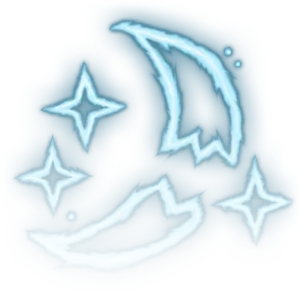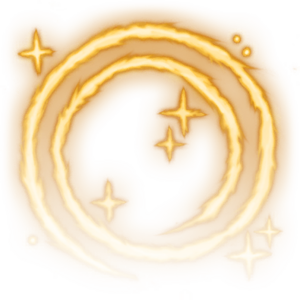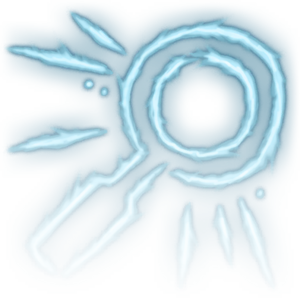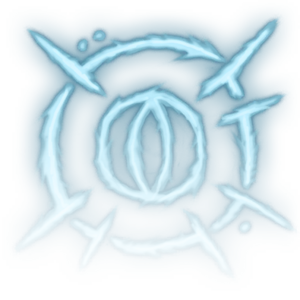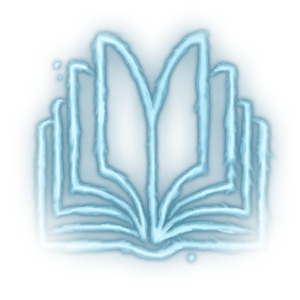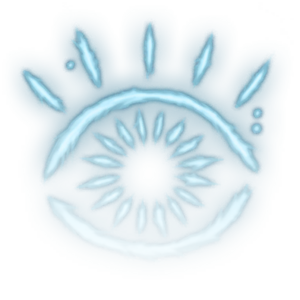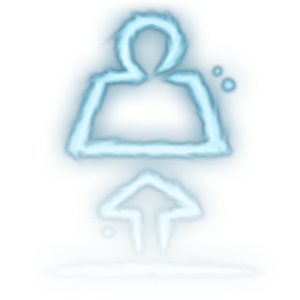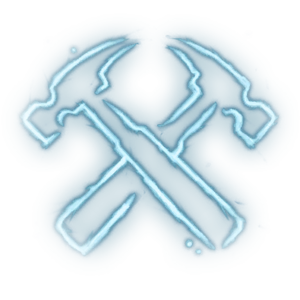Ad placeholder
Unimplemented spells: Difference between revisions
("Legacy Content" -> "Legacy content") |
No edit summary |
||
| Line 61: | Line 61: | ||
| this is an example = yes | | this is an example = yes | ||
}} | }} | ||
== Magic Circle == | == Magic Circle == | ||
{{SpellPage | {{SpellPage | ||
| Line 202: | Line 201: | ||
| this is an example = yes | | this is an example = yes | ||
}} | }} | ||
==References== | |||
{{Reflist|url}} | |||
Revision as of 18:42, 7 September 2024
This article is about gameplay elements – such as characters, quests or mechanics – that have been removed from the game and is no longer available. |
| Cut Content | Unimplemented spells | Helia | Nightsong |
Some spells were at one point in development considered to be included in the game but ultimately were cut. The icons for them are present in the game files.
The following sections are recreations based on D&D 5th edition SRD. Some stats were modified to make them feel more like the versions that would work in the game, such as changing spell duration of "1 hour" to "until long rest", as Larian did with other similar spells.
Magic Jar
Magic Jar is a level 6 necromancy spell. It lets you posess a humanoid and control their body as your own.
Description
Your body falls into a catatonic state as your soul leaves it and enters the jar.
You can attempt to possess any humanoid that you can see within 100 feet of your jar. The target must make a Charisma saving throw. Upon success, this creature's soul is stuck in the jar and you have full control of their body.
Your game statistics are replaced by the statistics of the creature, though you retain your , , and scores. You retain the benefit of your own class features. If the target has any class levels, you can't use any of its class features.
![]() Can only be used outside of combat.
Can only be used outside of combat.
Properties
- Details
 Range: Self
Range: Self
At higher levels
Casting this spell at a higher level grants no additional benefit.
How to learn
Classes:
- Class Level 11: Wizard
Notes
- Magic Jar on D&D Beyond.
Dispel Magic
Dispel Magic is a level 3 abjuration spell. It lets you remove any magical effects from a creature or an object.
Description
Choose one creature, object, or magical effect within range. Any Level 3 spell or lower on the target ends. For each Level 4 spell or higher on the target, make an ability check using your spellcasting ability. The DC equals 10 + the spell's level. On a successful check, the spell ends.
Properties
- Details
 Range: 36 m / 120 ft
Range: 36 m / 120 ft
At higher levels
Upcast: You automatically end the effects of a spell on the target if the spell's level is equal to or less than the level of the spell slot you used.How to learn
Notes
- Dispel Magic on D&D Beyond.
- According to Swen Vincke, Baldur's Gate 3 developers tried to make D&D's Dispel Magic work for a long time, but 'it would've doubled the size of the game'.[url 1]
Magic Circle
Magic Circle is a level 3 abjuration spell. This spell protects you from a creature type, or prevents a creature type from leaving it.
Description
You create a 10-foot-radius, 20-foot-tall cylinder of magical energy centered on a point on the ground that you can see within range. Glowing runes appear wherever the cylinder intersects with the floor or other surface.
Choose one type of a creature: elementals, fiends, or undead.
The chosen creature type can’t willingly enter the cylinder, has disadvantage on attack rolls against targets within, targets within can’t be charmed, frightened, or possessed by this creature type.
When you cast this spell, you can elect to cause its magic to operate in the reverse direction, preventing a creature of the specified type from leaving the cylinder and protecting targets outside it.
Properties
- Details
 Range: 3 m / 10 ft
Range: 3 m / 10 ft AoE: 3 m / 10 ft (Radius)
AoE: 3 m / 10 ft (Radius)
At higher levels
Upcast: Duration increases by 1 hour for each slot level above 3rd.Variants
How to learn
Notes
- Game files suggest in BG3 version the spell would work on only one creature type at a time, and celestials and fey are missing from that list. In 5e the spell says "Choose one or more of the following types of creatures: celestials, elementals, fey, fiends, or undead."
- Magic Circle on D&D Beyond.
Identify
Identify is a level 1 divination spell. This spell lets you learn everyting about a magic item or magic effects on a creature.
Description
You choose one object. If it is a magic item or some other magic-imbued object, you learn its properties and how to use them. You learn whether any spells are affecting the object and what they are. If the object was created by a spell, you learn which spell created it.
If you select a creature instead, you learn what spells, if any, are currently affecting it.
Properties
- Details
 Range: 1.5 m / 5 ft
Range: 1.5 m / 5 ft Ritual
Ritual
At higher levels
Casting this spell at a higher level grants no additional benefit.
How to learn
Classes:
- Class Level 1: Bard, Wizard, and Knowledge Domain
Notes
- In BG3 you learn all stats of an item by default and all effects affecting a creature can be seen in the examine window, making this spell useless in BG3, which is probably why it was cut.
- Identify on D&D Beyond.
Arcane Eye
Arcane Eye is a level 4 divination spell. This spell lets you create an invisible magical spying eye to safely scout around.
Description
You create an invisible, magical eye within range that hovers in the air until long rest.
You mentally receive visual information from the eye, which has normal vision and darkvision out to 30 feet.
You can move the eye up to 30 feet in any direction. There is no limit to how far away from you the eye can move. A solid barrier blocks the eye's movement, but the eye can pass through an opening as small as 1 inch in diameter.
Properties
- Details
 Range: 9 m / 30 ft
Range: 9 m / 30 ft
At higher levels
Casting this spell at a higher level grants no additional benefit.
How to learn
Classes:
- Class Level 1: Wizard, and Knowledge Domain
Notes
- This may sound similar to the Scrying Eye NPC in Baldur's Gate 3, however the Scrying Eye is actually a result of another 5e spell - Scrying, which is quite differently implemented in BG3, as the Scrying's orb can only be seen with see invisibility and it is invulnerable to damage and only can be destroyed by Dispel Magic (or a similar effect).
- Arcane eye on D&D Beyond.
Comprehend Languages
Comprehend Languages is a level 1 divination spell. This spell lets you understand any spoken or written language.
Description
Until long rest you understand the literal meaning of any spoken language that you hear. You also understand any written language that you see.
This spell doesn't decode secret messages in a text or a glyph, such as an arcane sigil, that isn't part of a written language.
Properties
- Details
 Range: Self
Range: Self Ritual
Ritual
At higher levels
Casting this spell at a higher level grants no additional benefit.
How to learn
Notes
- This spell could have been used to communicate with enemies and sentient creatures who don't speak Common. Larian probably decided it wasn't worth it to add NPCs who speak various different languages that the player may or may not understand, Additionally, many books would be written in languages you don't know, forcing the player to use this spell, creating obstacles that might feel repetitive and tiresome after a while.
- Comprehend Languages on D&D Beyond.
True Seeing
True Seeing is a level 6 divination spell. This spell grants a creature truesight to see through illusions, invisibility and magical secret doors.
Description
Touch an ally to give them the ability to see things as they actually are until long rest. The affected creature has ![]() truesight, notices secret doors hidden by magic, sees through illusions, shapeshifters and invisible creatures, all out to a range of 120 feet.
truesight, notices secret doors hidden by magic, sees through illusions, shapeshifters and invisible creatures, all out to a range of 120 feet.
Properties
- Details
 Melee: 1.5 m / 5 ft
Melee: 1.5 m / 5 ft
At higher levels
Casting this spell at a higher level grants no additional benefit.
How to learn
Notes
- This spell can reveal a lot of hidden information to the player, but it does require you to be level 11, so it would allow the players to immediately see through Orin's disguises (as if it wasn't obvious enough) as well as through other shapeshifters like Dolor and the other Doppelgangers, Grisly, Jatlo. This probably interfered too much with the plot.
- True Seeing on D&D Beyond.
Levitate
Levitate is a level 2 transmutation spell. This spell makes a creature hover in the air.
Description
Choose one creature or loose object within 60 ft. It rises vertically up to 20 feet, and remains suspended there for 10 minutes. The spell can levitate a target that weighs up to 500 pounds. An unwilling creature that succeeds on a Constitution saving throw is unaffected.
You can change the target's altitude by up to 20 feet in either direction on your turn. If you are the target, you can move up or down as part of your move. Otherwise, you can use your action to move the target, which must remain within the spell's range.
When the spell ends, the target floats gently to the ground if it is still aloft.
Properties
- Details
 Range: 18 m / 60 ft
Range: 18 m / 60 ft
At higher levels
Casting this spell at a higher level grants no additional benefit.
How to learn
Notes
- Levitate on D&D Beyond.
Mending
Mending is a cantrip (Transmutation). This spell repairs a single break or tear in an object you touch.
Description
This spell repairs a single break or tear in an object you touch, such as a broken chain link, two halves of a broken key, a torn cloak, or a leaking wineskin. As long as the break or tear is no larger than 1 foot in any dimension, you mend it, leaving no trace of the former damage.
This spell can physically repair a magic item or construct, but the spell can't restore magic to such an object.
![]() Can only be used outside of combat.
Can only be used outside of combat.
Properties
- Details
 Range: 1.5 m / 5 ft
Range: 1.5 m / 5 ft
At higher levels
Casting this spell at a higher level grants no additional benefit.
How to learn
Notes
- Mending on D&D Beyond.
References
- ↑ Gaming magazine: Harvey Randall. PC Gamer article. Pc Gamer. Retrieved 08:26, 2023-12-11.

